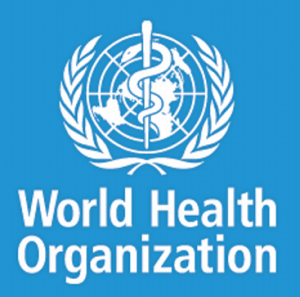Latest Ebola outbreak halted in Liberia
 The World Health Organisation (WHO) on Thursday declared the end of the most recent outbreak of Ebola virus disease in Liberia and says all known chains of transmission have been stopped in West Africa.
The World Health Organisation (WHO) on Thursday declared the end of the most recent outbreak of Ebola virus disease in Liberia and says all known chains of transmission have been stopped in West Africa.
But the Organisation says the job is not over, more flare-ups are expected and that strong surveillance and response systems will be critical in the months to come.
A statement issued by the WHO, which was made available to the Ghana News Agency by Tarik Jašarevic, WHO Communications Officer, said Liberia was first declared free of Ebola transmission in May 2015, but the virus was re-introduced twice since then, with the latest flare-up in November.
It said the announcement comes 42 days (two 21-day incubation cycles of the virus) after the last confirmed patient in Liberia tested negative for the disease two times.
“WHO commends Liberia’s government and people on their effective response to this recent re-emergence of Ebola,” said Dr Alex Gasasira, WHO Representative in Liberia.
“The rapid cessation of the flare-up is a concrete demonstration of government’s strengthened capacity to manage disease outbreaks. WHO will continue to support Liberia in its effort to prevent, detect and respond to suspected cases,” he added.
The statement said this date marks the first time since the start of the epidemic two years ago, that all three of the hardest-hit countries—Guinea, Liberia and Sierra Leone—have reported zero cases for at least 42 days. Sierra Leone was declared free of Ebola transmission on November 7 and Guinea on December 29, 2015.
“Detecting and breaking every chain of transmission has been a monumental achievement,” said Dr Margaret Chan, WHO Director-General.
“So much was needed and so much was accomplished by national authorities, heroic health workers, civil society, local and international organizations and generous partners. But our work is not done and vigilance is necessary to prevent new outbreaks,” she said.
The statement said the WHO cautions that the three countries remain at high risk of additional small outbreaks of Ebola, like the most recent one in Liberia.
It said to date, 10 such flare-ups have been identified that were not part of the original outbreak, and are likely the result of the virus persisting in survivors even after recovery.
It said evidence shows that the virus disappears relatively quickly from survivors, but can remain in the semen of a small number of male survivors for as long as one year, and in rare instances, be transmitted to intimate partners.
“We are now at a critical period in the Ebola epidemic as we move from managing cases and patients to managing the residual risk of new infections,” said Dr Bruce Aylward, WHO’s Special Representative for the Ebola Response.
“The risk of re-introduction of infection is diminishing as the virus gradually clears from the survivor population, but we still anticipate more flare-ups and must be prepared for them.
“A massive effort is underway to ensure robust prevention, surveillance and response capacity across all three countries by the end of March,” he stated.
The statement said the WHO and partners are working with the governments of Guinea, Liberia and Sierra Leone to help ensure that survivors have access to medical and psycho-social care and screening for persistent virus, as well as counselling and education to help them reintegrate into family and community life, reduce stigma and minimize the risk of Ebola virus transmission.
It said the Ebola epidemic claimed the lives of more than 11, 300 people and infected over 28,500.
It noted that the disease wrought devastation to families, communities and the health and economic systems of all three countries.
Source: GNA
